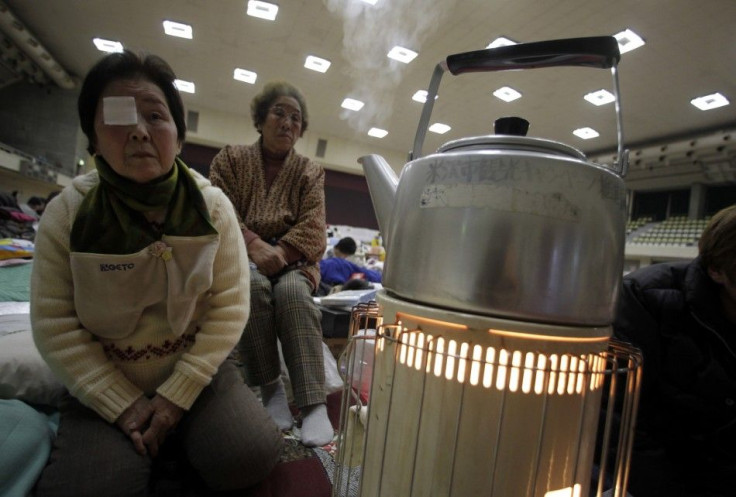Amidst unspeakable horror, volunteerism flourishes in Japan

The immense tragedy in Japan has brought out waves of support, comfort and succor from volunteers seeking to provide help if any kind, even by people who themselves have suffered terribly during the current crisis.
In Saitama prefecture north of Tokyo, so many volunteers flooded the Super Arena – usually a venue for musical concerts – to tend to the needs of evacuees gathered there that many had to be turned away, according to media reports.
Not even a downpour and cold weather dissuaded the volunteers.
The evacuees, who were moved to Saitama from their homes near the crippled nuclear power plant in Fukushima, also received a mountain of boxes of food, clothes, supplies and emergency aid.
Saitama prefectural authorities were taken aback by the largesse since they made no official call for volunteers or donations.
“It was very difficult to turn people away,” said an official in Saitama, according to local media.
Another woman volunteer told reporters: “We hope this will help. Everyone wants to do something.”
Volunteers in Saitama are primarily working on food distribution, garbage separation and emergency aid.
The huge metropolis of Tokyo has opened up shelters for tsunami survivors from the Tohoku area.
Some evacuees at the Tokyo Budokan – a world-famous performance arena – were given hot meals for the first time in weeks. Many of the people at Budokan were sent from the Fukushima prefecture.
I really appreciate a hot meal because we hadn't had it for a while, said Nanami Nitama, a 22-year-old nursery school teacher from Iwaki, Fukushima Prefecture, according to local media.
Budokan has been supported by volunteers from the Nippon Seikokai (Anglican Church in Japan) and another nonprofit organization who cooked rice and miso soup with meat and vegetables .
The Tokyo municipal government has also opened two other temporary shelters: Ajinomoto Stadium in Chofu (which can accommodate 1,600 people) and Tokyo Big Sight in Koto Ward, which can take care of 3,000 evacuees.
Even foreign immigrants in Japan are helping victims.
Another media report described how a group of people from Bangladeshi and Sri Lanka banded together to provide hot meals for displaced Japanese tsunami survivors in Kesennuma, Miyagi Prefecture.
Hailing from Kanagawa prefecture (which is just south of Tokyo), the South Asian immigrants came 150 miles north to give warm bowls of rice curry to hundreds of evacuees.
Saber Sakura, who organized the group of volunteers for the journey told reporters: Everything was in ruins. A car was on top of a three-story building. Another was literally twisted. A big fishing vessel was in the center of the city. It's really beyond description. If the tsunami hadn't hit, I think only 10 or 15 percent of the buildings would have been damaged.”
Kesennuma is one of hardest-hit areas of Japan. It is estimated that 15,000 homeless residents are living in about 100 shelters in the area.
Sakura added: The tsunami hit the area only after 15 minutes of the quake. The lives of the survivors must be gifts from God.”
Sakura said he wanted to help survivors as soon as the quake struck. Initially he was assisting Bangladeshi students at Tohoku University in Sendai with returning to their native country. Thereafter, he, his wife and their Bangladeshi and Sri Lankan friends drove in a convoy towards Miyagi – an eight-hour drive -- carrying with them supplies, including 700 kilograms of rice, 400 kilograms of meat and boxes of diapers, snacks and medicine.
Driving through Fukushima Prefecture was scary because of the radiation,” Sakura added.
”We closed all the windows, stopped the heater to prevent outside air from coming in. It was very dark, and we were the only cars driving.”
Sakura’s wife, who runs a curry restaurant in the Asakusa district in Taito Ward, Tokyo, told reporters:
Most people only had miso soup as something warm to eat, so we're glad that they were able to eat warm curry. Japan is a good friend to Bangladesh, and Japanese have always supported us when help was in need. And now, I wanted to do my part to support Japanese.”
© Copyright IBTimes 2024. All rights reserved.











